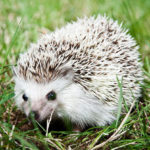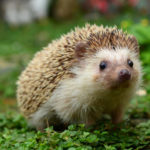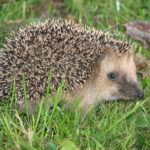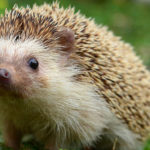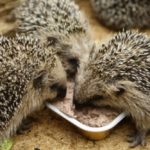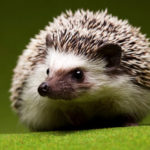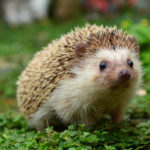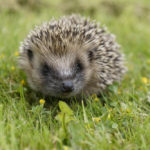African hedgehog
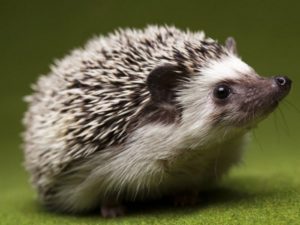 You can’t meet the African dwarf hedgehog in the wild, this species appeared by selection, that is, it was artificially bred by breeders specifically for keeping at home. In everyday life, the African hedgehog is unpretentious, but there are still some “pitfalls” in its contents, which are best known before an exotic guest settles in the house.
You can’t meet the African dwarf hedgehog in the wild, this species appeared by selection, that is, it was artificially bred by breeders specifically for keeping at home. In everyday life, the African hedgehog is unpretentious, but there are still some “pitfalls” in its contents, which are best known before an exotic guest settles in the house.
Like any hedgehog, an African needs optimal living conditions, proper nutrition and exercise, attention and affection. Choosing a prickly pet should not be inert people who do not want to take care of a little friend, just do not buy a hedgehog as a gift to children.
In appearance, character and taste preferences, the African hedgehog differs from wild relatives. These hedgehogs are smaller, and the color of wool and needles is striking in variety – the price of a hedgehog depends on the rarity of color. These animals have no specific smell, move silently, rarely show bitterness or try to bite. They do not hibernate.
The characters of the “Africans” are as “motley” as the colors. There are hedgehogs outgoing merry fellow, and there are hermits; very rarely come across frank slyts who, under stress, are able to completely smear themselves with saliva.
The colors of these hybrid hedgehogs are very diverse. There are gray and black, chocolate and brown, “salt and pepper” and “champagne”. There are also albino hedgehogs.
What to feed?
Since this species was bred completely artificially, without meeting in the wild, there are certain features of the content of these animals, in particular, their feeding.
In particular, these hedgehogs are quite suitable for a good cat food of a super-premium class, in which there are no components with a high starch content – potatoes, corn. Africans feel great eating this food, dry or canned. Both feed options should be balanced and high quality, without artificial colors, additives or preservatives. And it is desirable that the main component of the feed was chicken, and in the case of adult animals, it is important to monitor the amount of fat in the feed, since the hedgehogs are prone to overweight.
If, for some reason, the prepared food is not suitable for eating the hedgehog, you can try switching to feeding it with natural types of food. For example, insects, which are the basis of the nutrition of these animals. It is important to consider that not all insects are suitable for this role, and that ideally they should be grown on their own in order to avoid infection of the hedgehogs with any disease. However, if this is not possible, frozen insects can also be used, which must be thawed before use and allowed to warm to room temperature.
Among insects suitable for the role of food for African hedgehogs, one can distinguish silkworms, flour worms, crickets or Argentine cockroaches.
In addition to insects, hedgehogs can be fed lean meat a couple of times a week: chicken, veal, beef. It is desirable that the meat be boiled and without salt, in order to avoid infection of the animal with parasites, and it should be introduced into the diet gradually, making sure that the hedgehog does not open an allergy.
As an additional nutrition or goodies at home, an African hedgehog can be fed unsalted boiled chicken egg, raw quail egg, boiled unsalted fish.






